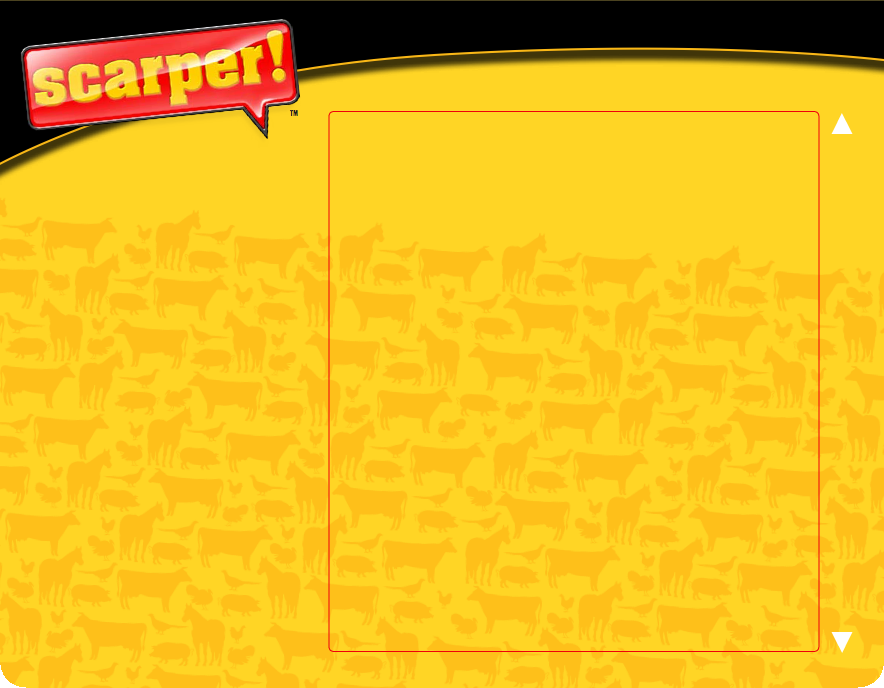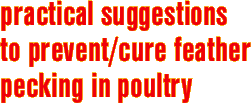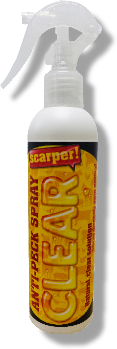 |
||


Feather pecking is usually caused by either a management problem or a mineral deficiency – or both, but once the habit is formed it is difficult to break!
1. Stop feeding scraps or left-over food. Hens will happily fill up on scraps at the expense of a balanced diet.
2. Never feed pellets – always meal (mash) – at least 16-17% protein). Hens can eat pellets very quickly and, when they are full, become bored and look round for something else to do – feather pecking seems a handy option! Meal takes them much longer to eat so they have less time for vices – this is probably the single most important change you can make. Make sure you feed “ad-lib” – not twice a day.
3. Provide grit but make sure it contains both soluble (oyster shell) and insoluble grit. The soluble grit is used for mineral supply, important for producing egg shells and strong bone development, and the insoluble grit is a ‘grinding aid’ in the crop to help with digestion of food.
4. Mineral deficiency is often a problem in feather pecking chickens. When a bird has heavy demands for calcium, such as during the growing phase or during egg production a mineral deficiency can cause them to attempt to obtain sufficient calcium and other minerals by pecking feathers! As a temporary measure, add a calcium supplement to the diet or drinking water. This should not be long-term necessity.
5. Suspend a Nutri-Peck block in the run or poultry house. This provides added interest, occupation, distraction and has nutritional value as well – usually a very successful measure.
6. Suspend cabbage leaves or similar greenery, either by tying into a bunch or making a ‘basket’ out of chicken wire or similar and hang from the roof of the poultry run. Greens are the exception to the rule ‘Don’t feed scraps’!
7. Apply Scarper! urgently to all pecked chicken. The long-lasting powerful odour acts as a deterrent to the culprits as they cannot bear the smell any more than we can! Scarper! also camouflages the pecked areas so that they are less obvious and attract less attention. Scarper! helps to break the habit. Do use disposable gloves with Scarper! – or no-one will come near you either!
8. If at all possible, allow the birds to free-range at least until the habit is broken. It keeps them busy!
9. Cider Vinegar added to the drinking water is a good source of minerals – it helps prevent and cure worms and coccidiosis too. A soluble multivitamin powder may be needed to return your stock to full health.
10. If using artificial light, change to red bulbs – this minimises the visibility of any blood and so decreases the ‘target’ area.
Happy Clucking!

